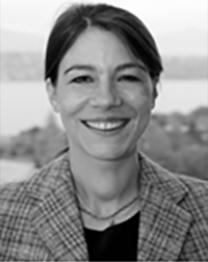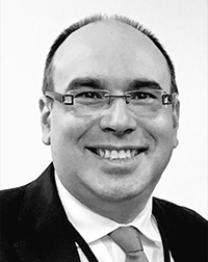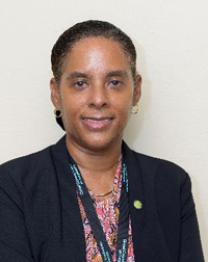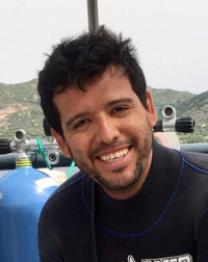Ports are gateways to global markets for all countries and provide access to ocean economy activities, including fishing and tourism.
This session will focus on the key role ports play in ensuring food security, both at global level and in SIDS – sea-locked nations that depend on their ports as lifelines but are also particularly vulnerable to the impacts of climate change. Emphasis will be placed on the critical importance of climate-resilience, adaptation and DRR for ports and on the need for sustainability, including in terms of pollution prevention, GHG emissions reduction and a just energy transition, highlighting some key challenges and areas for action.
Speakers:
Panelists:
- Ms. Regina Asariotis, Chief (a.i.), Trade Logistics Branch and Chief, Policy and Legislation Section, UNCTAD
- Ms. Susanna DeBeauville-Scott, Sustainable Ocean Management Programme, OECS Commission
- Mr. Jorge Barbosa, Blue Economy Advisor, Water Revolution Foundation
- Mr. David Vivas Eugui, Chief of Ocean and Circular Economy Unit, a.i., Trade, Environment, Climate Change and Sustainable Development Branch, UNCTAD
- Mr. Onno Hoffmeister, Chief, Statistics Production Unit, Statistics Service, UN Trade and Development (UNCTAD)

Regina Asariotis is Chief (a.i.) of the Trade Logistics Branch in the Division on Technology and Logistics of UNCTAD with responsibility for UNCTAD’s related work, including coordination of the UNCTAD Review of Maritime Transport 2025. She is also Chief of the Policy and Legislation Section, with responsibility for UNCTAD's work on transport law and policy.
Before joining UNCTAD in 2001, Regina was a Senior Lecturer in Maritime Law at the University of Southampton and a member of the Governing Board of the Institute of Maritime Law, an internationally leading centre for research and teaching in the field.
She holds a German law degree (Bavaria), an English LL.M (Soton) and a German doctorate in Maritime Law (Dr. jur., Hamburg) and is a practising Barrister (England & Wales), an Attorney at Law (Greece), as well as Member of the Chartered Institute of Arbitrators (CIArb).

David Vivas Eugui is Chief of Ocean and Circular Economy Unit, a.i., Trade, Environment, Climate Change and Sustainable Development Branch, at UNCTAD.
Previously, he was a Senior Economic Affairs Officer in UNCTAD’s Trade Negotiations and Commercial Diplomacy Branch, Deputy Programmes Director at the International Centre for Trade and Sustainable Development (ICTSD), Senior Attorney at the Center for International Environmental Law (CIEL), Attaché for Legal Affairs at the Mission of Venezuela to the World Trade Organization (WTO) and Staff Attorney at the Venezuelan Institute of Foreign Trade. David is an international expert with more than 20 years of experience on legal and economic issues.
He has worked as an advisor and consultant for various institutions, international and national organizations and has lectured on intellectual property, trade, oceans economy and environmental law at the University of Strasbourg (CEIPI), Universidad de Buenos Aires (Argentina), Universidad Javeriana (Colombia), Maastricht University (the Netherlands), WIPO Distant Learning Academy, and University of Business and International Studies (Switzerland).
He holds a JD from the Universidad Catolica Andres Bello, an LLM from Georgetown University and a Master in Transnational Business from the Universidad Externado de Colombia.

Onno Hoffmeister joined the UN Trade and Development's (UNCTAD) Statistics Service in 2015.
He previously worked as statistician at the Food and Agricultural Organization of the United Nation (FAO) and Eurostat and as researcher at the University of Hamburg and the German Institute for Economic Research. He was engaged as consultant for the GIZ and the German Federal Ministry of Economics in capacity building ("twinning") projects of the European Commission.
In 2024, he led UNCTAD's comprehensive assessment of the impact of mid-term IMO GHG reduction measures on States and in 2023 the development of the UNCTAD - World Bank Trade-and-Transport Dataset. He coordinated the statistical work behind many of UNCTADs online datasets including on ocean trade and maritime transport.
He holds a PhD in Economics from the European University Viadrina and has 25 years of experience in statistics, economic analysis and capacity building. He published in the Journal of Shipping and Trade, the Statistical Journal of the IAOS, Agricultural Economics, the Review of Income and Wealth and other peer-reviewed journals. He is member of the UN Committee of Experts on Business and Trade Statistics, the International Association for Official Statistics, and the German Association for Social Policy.

Susanna De Beauville-Scott brings over 25 years of experience to her work in conservation and sustainable development in the Eastern Caribbean.
Her expertise spans ocean governance, marine spatial planning, integrated coastal zone management, environmental impact assessment, climate change adaptation, biodiversity management, and fisheries.
A certified project manager, she has led several national and regional projects. Currently, Ms. De Beauville-Scott serves as the Director of the Sustainable Ocean Management Programme at the Organisation of Eastern Caribbean States (OECS) Commission where she provides strategic leadership, collaboratively guiding the development and implementation of initiatives in ocean governance and management across the OECS region.

Over the past 15 years, Jorge has led programs on marine and coastal governance, climate adaptation, and biodiversity conservation across Latin America, the Caribbean, Asia-Pacific, and the Gulf.
Jorge’s work has contributed to global dialogues on ocean sustainability, mobilizing over US$10 million in program funding, and informed innovative policy solutions in collaboration with national governments and multilateral partners. For example, serving as an ‘ocean advisor’ and working closely with ambassadors’ part of the Pacific Small Islands Developing States (PSIDS), Jorge made significant contributions to the negotiations and drafting of the original SDG 14 concept note in 2013.
Whether at the World Bank, the United Nations, or in high-level advisory roles in governments [e.g., Saudi Arabia], Jorge has consistently applied results-driven leadership, technical rigor, and a deep commitment to inclusive development. Jorge’s hobbies include SCUBA Diving and sailing ‘traditionally rigged’ vessels.


